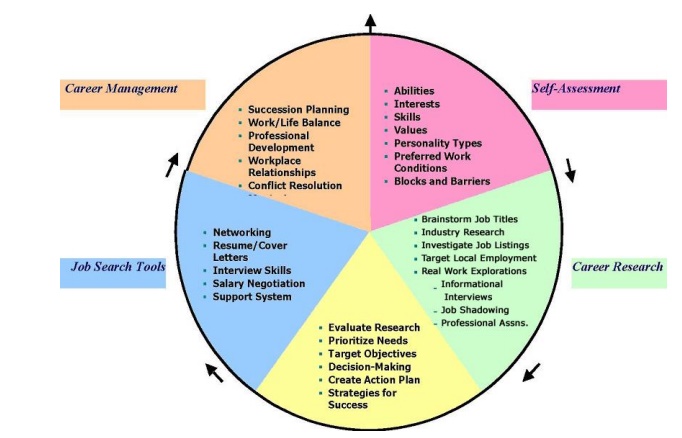Chapter: Business Science : Managerial Behavior and Effectiveness : Designing The Managerial Job
Career Management
Career Management
Career
management is the combination of structured planning and the active management
choice of one's own professional career. The outcome of successful career
management should include personal fulfillment, work/life balance, goal
achievement and financial security
Career
stages
1. Entry to
the organization when the individual can begin the process of self-directed
career planning.
2. Progress
within particular areas of work where skills and potential are developed
through experience, training, coaching, mentoring and performance manage- ment.
3. Mid-career
when some people will still have good career prospects while others may have
got as far as they are going to get, or at least feel that they have. It is
nec- essary to ensure that these ‗plateaued‘ people do not lose interest at
this stage by taking such steps as providing them with cross-functional moves,
job rotation, special assignments, recognition and rewards for effective
performance, etc.
Later
career when individuals may have settled down at whatever level they have
reached but are beginning to be concerned about the future. They need to be
treated with respect as people who are still making a contribution and given
oppor- tunities to take on new challenges wherever this is possible. They may also need reassurance
about their future with the organization and what is to happen to them when
they leave.
5. End of
career with the organization – the possibility of phasing disengagement by
being given the chance to work part time for a period before they fi nally have
to go should be considered at this stage.
Career
development strategy
A career
development strategy might include the following activities: a policy of
promoting from within wherever possible; • career routes enabling talented
people to move from bottom to top of the organization, • or laterally in the fi
rm, as their development and job opportunities take them; personal development
planning as a major part of the performance management • process, in order to
develop each individual‘s knowledge and skills; systems and processes to
achieve sharing and development of knowledge (especially • tacit) across the fi
rm; multi-disciplinary project teams with a shifting membership in order to
offer develop- • mental opportunities for as wide a range of employees as
possible.
Career
management activities
As
described by Hirsh and Carter (2002), career management encompasses
recruitment, per-sonal development plans, lateral moves, special assignments at
home or abroad, development positions, career bridges, lateral moves and
support for employees who want to develop.
Career
management practices 1. Postings regarding internal job openings.
2. Formal
education as part of career development.
3. Performance
appraisal as a basis for career planning.
4. Career
counselling by manager.
5. Lateral
moves to create cross-functional experience.
6. Career
counselling by HR department.
7. Retirement
preparation programmes.
8. Succession
planning.
9. Formal
mentoring.
10.
Common career paths.
11.
Dual ladder career paths (parallel hierarchy for
professional staff).
12.
Books and/or pamphlets on career issues.
13.
Written personal career planning (as done by the
organization or personally).
14.
Assessment centres.
15.
Peer appraisal.
16.
Career workshops.
17.
Upward (subordinate) appraisal.
The process of career management

Career planning
Career
planning involves the defi nition of career paths – the routes people can take
to advance their careers within an organization. It uses all the information
provided by the organization‘s assessments of requirements, the assessments of
performance and potential and management succession plans, and translates it
into the form of individual career development programmes and general
arrangements for management development, career counselling and mentoring.
Related Topics